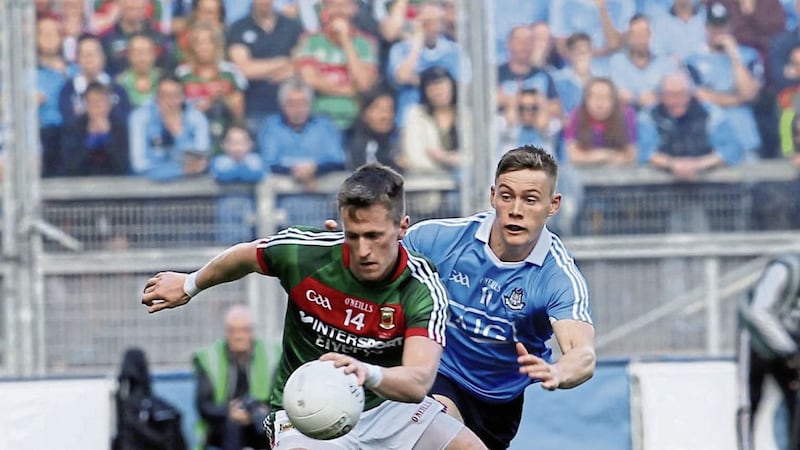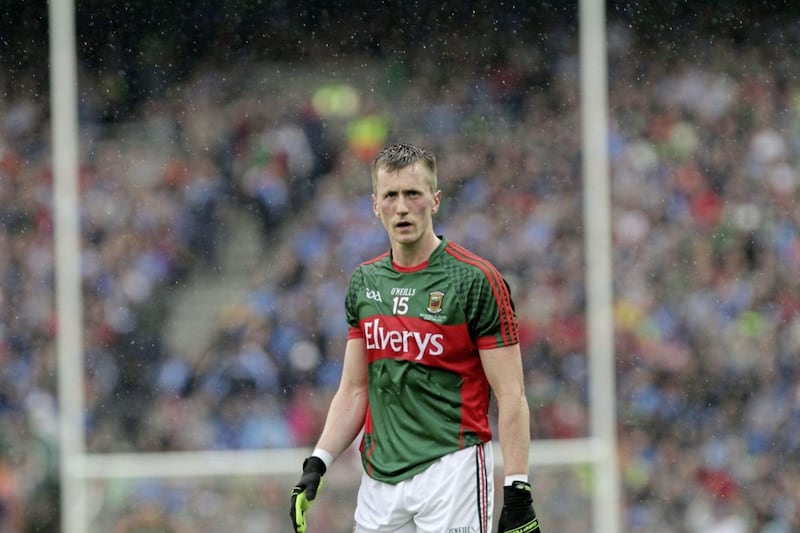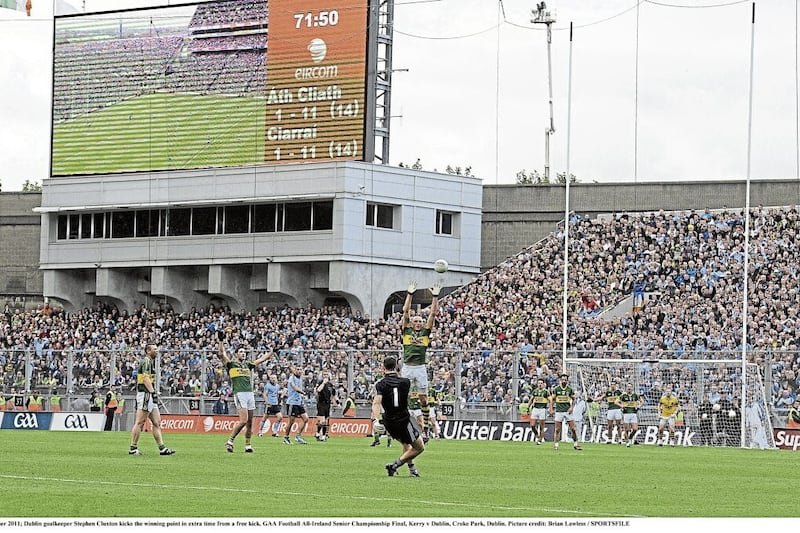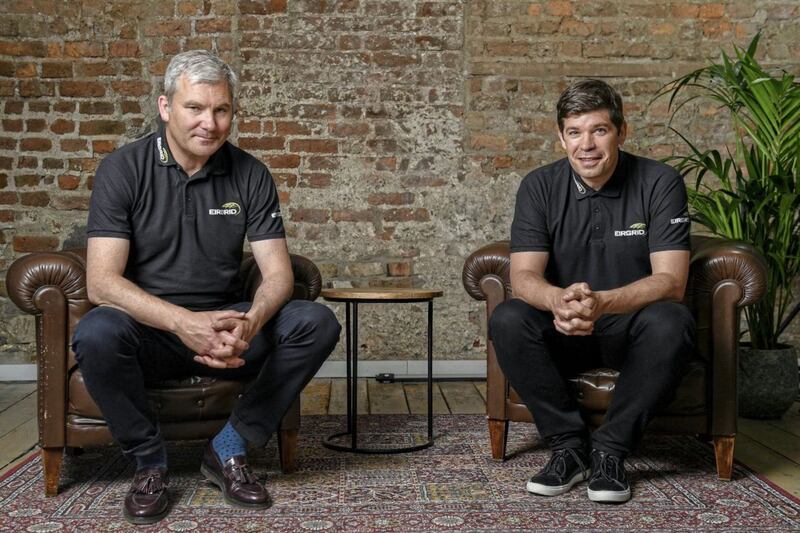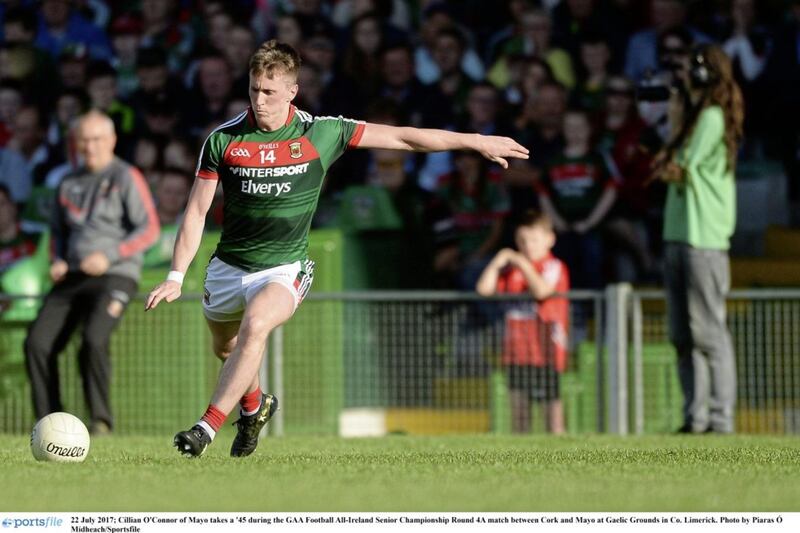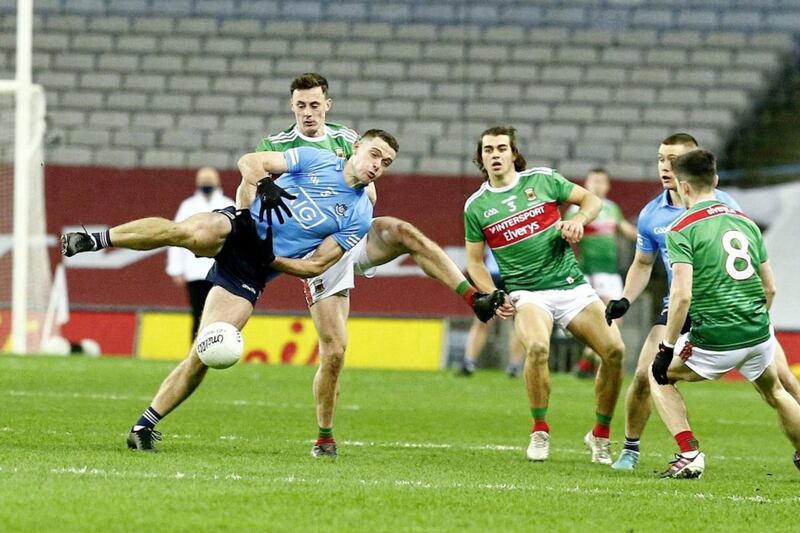DERMOT Earley jr tells a tale from his famous father Dermot’s funeral which typifies Irish attitudes.
One mourner sought out the son to praise the father’s brilliance as a footballer, and some of the points he scored. However, he couldn’t resist adding: “But he missed quite a few as well.”
Dermot jr, initially taken aback by that, thought long about that remark and decided that it only made his father greater, that he had been brave enough to take on the shots, miss some, and come back to take some more. If he missed them, he missed them. And never mind the critics.
What mattered most was that he always tried to score.
That sentiment should also apply to Cillian O’Connor.
The Mayo captain is still only 25, but there’s a growing fear that he may join the Earleys in being added to that list of ‘greatest players never to have won an All-Ireland’.
His seven points on Sunday took him to 3-66 for this season, averaging 7.5 points per match, over 10 games. That is tremendous scoring consistency.
It’s nothing new, though.
O’Connor has now registered 20-250 (310) from 44 senior Championship appearances, an average of just over seven points per game over his seven senior seasons.
Sadly a pre-match conversation about the knee injury Cillian sustained in 2015 proved prescient. His range has decreased since the operation to repair that knee, and the free that struck the right upright in added time on Sunday, when a point would have put Mayo back in front, was just outside his range nowadays.
People will recall that the Ballintubber clubman failed to force extra-time in last year’s final replay – forgetting that he had scored superbly from play in the 77th minute of the drawn game to earn that re-match.
There’s a certain Irish irony that Cillian O’Connor may be remembered and talked about more than some Dublin forwards who have a Celtic Cross or three (or more) in their collection.
And that is not to denigrate Dublin’s attackers, quite the opposite.
Among the many reasons that the Dubs have completed a hat-trick of football triumphs, and won five of the past seven titles, is that they have had, and continue to have, an astonishing array of excellent forwards.
It was striking – pun perhaps intended – to note the six players that Dublin manager Jim Gavin sent onto the pitch as substitutes on Sunday: Paul Flynn, Diarmuid Connolly, Kevin McManamon, Bernard Brogan, Niall Scully, and Cormac Costello, attackers all.
Basically he has 12 top forwards, who are all driving each other on to greater heights.
Indeed what ensured they secured the ‘three in-a-row’ was their amazing collective accuracy.
Mayo’s tally of 1-16 would have won the previous nine finals; no side has ever scored more and lost an Al-Ireland SFC decider. Only one team has ever scored as much and lost – Galway in 1973, when they went down by 2-13 to 3-17 against Cork, and that was an 80-minute match.
Yet Dublin scored more, because their shot conversion rate was so high, 67 per cent, even better than their usual range of just over 60.
Even so, the consensus was that they hadn’t played particularly well, but that’s because they make scoring look easy.
We mightn’t even remember many magnificent scores from Dublin – apart from Con O’Callaghan’s goal – but that’s largely because they work the ball so well into good positions that their players don’t have to score from outrageous angles, from the sort of areas that Stephen O’Neill used to score from, and from which Conor McManus still sends over points.
That’s not to say Dublin didn’t produce some very good scores, from one player in particular.
Dean Rock, still derided by some as ‘only a free-taker’ – as if that’s an easy job – stepped up when it mattered most.
He’d only scored one point from play in this Championship campaign (albeit along with three goals) before Sunday, but he added four more such scores against Mayo.
One of them was so good, cutting in along the end-line before fisting over from a narrow angle, that I initially thought it had been scored by Kevin McManamon.
Another showed similar cleverness and clinical finishing, when he caught a superb cross-field kick-pass from Diarmuid Connolly, and bore down on goal, but saw that Brendan Harrison was covering back towards his nets, so Rock shot over the bar rather than trying to score a goal.
Some nervous Dublin supporters might have thought differently, but I never had any doubt that Rock would convert the late free that won the trophy.
Cillian O’Connor doesn’t inspire quite the same level of confidence any more, injury has seen to that – but that won’t stop him trying, and he should be praised for that.
ONE recent prepared pre-match comment from the execrable John Motson, the weekend after the big announcement that he was finally hanging up his sheepskin coat and microphone, confirmed why that was such wonderful news.
The most over-rated and over-praised of soccer commentators declared that West Brom’s Chris Brunt had ‘scored for Northern Ireland in Czechoslovakia.’ No. He. Hadn’t.
The game was in Belfast. And Czechoslovakia ceased to exist 24 years ago.
I’m pretty sure it was Motson who wondered why an England game wasn’t taking place in Prague ‘as they used to’, but in Bratislava.
Well, the opposition were Slovakia, so they prefer to play matches in their own capital rather than that of their neighbours, the Czech Republic.
That match was in 2002, so it’s not as if ‘Motty’ has only recently started to make such sloppy errors. Like Czechoslovakia, he should have been consigned to the past long ago.

